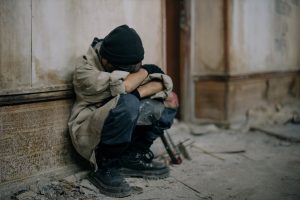Understanding the Critical Role of the Human Trafficking Hotline
The human trafficking hotline serves as a vital lifeline in the fight against modern slavery, operating 24/7 to connect victims with safety and support while enabling concerned citizens to report suspected human trafficking situations. The National Human Trafficking Hotline at 1-888-373-7888 represents more than just a phone number—it’s a comprehensive system designed to combat trafficking through immediate response, victim assistance, and law enforcement coordination.
This trafficking hotline, operated by Polaris in partnership with the U.S. Department of Health and Human Services, has become an essential tool for identifying victims of sex trafficking, labor trafficking, and other forms of exploitation. The International Protection Alliance recognizes the critical importance of these reporting mechanisms in their mission to empower enforcement agencies with advanced capabilities to track and apprehend online predators while protecting children and communities globally.
When Every Second Counts: Recognizing the Need to Call
The human trafficking hotline should be contacted whenever you suspect someone may be experiencing trafficking, regardless of whether you have concrete proof. The Department of Homeland Security’s Blue Campaign emphasizes that no tip is too small and that trusting your instincts can save lives. You don’t need to be certain—you just need to care enough to make the call to the national human trafficking hotline.
Situations that warrant contacting the trafficking hotline include witnessing someone who appears unable to speak freely, shows signs of physical abuse or control, or seems afraid and disoriented. Child sex trafficking cases are particularly urgent, as children involved in commercial sex acts are automatically considered trafficking victims under federal law, regardless of whether force, fraud, or coercion is present. The national hotline also handles reports of labor trafficking, where victims may be working in exploitative conditions without proper compensation or freedom of movement.
What Happens When You Contact the Human Trafficking Hotline
When you call the national human trafficking hotline, you’re immediately connected to a trained advocate who specializes in trafficking response and trauma-informed care. These professionals understand the sensitive information involved in trafficking situations and are equipped to handle calls with the utmost confidentiality and respect. The hotline operators will listen to your concerns first, then ask for any details you’re comfortable sharing about the location, individuals involved, and specific signs you’ve observed.
The trafficking hotline maintains strict confidentiality protocols, allowing callers to remain completely anonymous if they choose. You’re never required to provide your name or personal information, and the focus remains on gathering enough information to assess the situation and determine appropriate next steps. If law enforcement intervention is necessary, the hotline can coordinate with local law enforcement agencies, though this typically requires your consent unless a minor is in immediate danger.
Connecting Victims with Essential Resources and Assistance
For trafficking victims who contact the human trafficking hotline directly, the service provides immediate access to a comprehensive network of assistance programs. The hotline can connect survivors with emergency shelter, medical care, legal support, and specialized counseling services designed specifically for human trafficking victims. These resources extend beyond immediate safety needs to include long-term assistance for survivors navigating the complex process of rebuilding their lives after exploitation.
The national hotline also offers live chat options and text messaging services, recognizing that victims may not always be able to make voice calls safely. By texting “HELP” or “INFO” to BeFree (233733), potential victims can access the same level of support and information through alternative communication methods. This multi-channel approach ensures that assistance remains accessible even when traditional calls might put someone at risk, particularly in cases involving domestic violence or intimate partner trafficking situations.
Law Enforcement Coordination and Criminal Justice Response
The human trafficking hotline serves as a crucial bridge between community awareness and law enforcement action. When reports indicate potential trafficking situations, the hotline can facilitate coordination with appropriate agencies, including federal law enforcement through the Department of Homeland Security and local law enforcement departments. This coordination ensures that reports receive proper investigation while maintaining the safety of both reporters and potential victims.
However, the trafficking hotline operates under strict safety protocols that prioritize victim protection over immediate criminal justice response. The DHS Blue Campaign guidelines specifically warn against confronting suspected traffickers directly or alerting potential victims to your suspicions, as these actions could escalate dangerous situations. Instead, the hotline provides a safe channel for reporting concerns while allowing trained professionals to determine the most appropriate response based on human trafficking hotline statistics and best practices.
Recognizing the Signs: When Exploitation Becomes Apparent
Understanding the indicators of human trafficking helps community members recognize when to contact the trafficking hotline. Victims of sex trafficking may show signs of physical abuse, appear malnourished, or demonstrate scripted responses when speaking with others. They often lack control over their identification documents, personal belongings, or freedom of movement. In cases involving commercial sex exploitation, victims may be accompanied by controlling individuals who speak for them or monitor their interactions closely.
Labor trafficking presents different but equally concerning indicators. A trafficking victim may work excessively long hours in unsafe conditions, live in overcrowded or substandard housing provided by their employer, or show signs of debt bondage where they’re told they must work to pay off transportation or housing costs. The trafficking hotline receives reports about various industries where labor trafficking occurs, from agriculture and construction to domestic work and hospitality services, often involving fraud schemes that initially appear legitimate.
Supporting Survivors Through Comprehensive Services
The human trafficking hotline connects survivors with specialized service providers who understand the unique challenges faced by trafficking victims. These anti trafficking services include trauma-informed counseling, legal advocacy, assistance with immigration issues, and help accessing basic necessities like housing and healthcare. Many survivors also need support navigating the criminal justice system, whether as witnesses in prosecutions against their traffickers or in pursuing civil remedies for their exploitation.
A survivor often requires assistance addressing the complex trauma associated with sexual exploitation, sexual assault, and other forms of violence experienced during their trafficking situation. The International Protection Alliance’s mission aligns closely with these comprehensive support services, recognizing that stopping online exploitation requires not only advanced technological capabilities for tracking predators but also sustained support for survivors throughout their healing process.
Digital Safety and Online Exploitation Reporting
Modern trafficking increasingly involves digital platforms, making the human trafficking hotline’s role in addressing online exploitation more critical than ever. Traffickers use official websites, social media platforms, and encrypted communications to recruit victims, advertise commercial sex services, and coordinate their criminal operations. The hotline receives reports about suspected online trafficking activities and can coordinate with specialized units that investigate digital crimes through official secure websites and protected channels.
The rise of online exploitation has created new challenges for identifying and assisting victims. Children may be trafficked through social media recruitment, while adults might be lured through fraudulent job advertisements or romantic relationships that begin online. A missing child report might reveal connections to trafficking networks operating across multiple platforms. The trafficking hotline’s trained advocates understand these digital dynamics and can provide appropriate guidance for reporting online exploitation while ensuring that sensitive information about victims and ongoing investigations remains protected.
Building Public Awareness and Community Response
The effectiveness of the human trafficking hotline depends largely on public awareness and community engagement. When more people understand the signs of trafficking and know how to report their concerns, more victims can be identified and connected with assistance. The hotline also serves an educational function, helping callers understand the realities of trafficking while dispelling common myths that might prevent people from reporting suspicious situations.
Community education efforts emphasize that trafficking affects all demographics and occurs in every geographic area. Victims aren’t always foreign nationals or people who have been physically transported across borders. Many trafficking victims are U.S. citizens who are exploited within their own communities, often by people they know. This reality makes community awareness and the accessibility of the trafficking hotline even more crucial for victim identification and assistance, particularly in cases involving discrimination against vulnerable populations.
Specialized Support for High-Risk Populations
The human trafficking hotline provides specialized resources for particularly vulnerable populations, including runaway youth who may contact the National Runaway Safeline before being identified as trafficking victims. Young people experiencing homelessness, aging out of foster care, or fleeing domestic violence situations face elevated risks of being targeted by traffickers who exploit their desperation and lack of support systems.
The Trafficking Victims Protection Act recognizes these vulnerabilities and mandates comprehensive assistance for all trafficking victims regardless of their immigration status, age, or circumstances of exploitation. Service providers working with the hotline understand the intersection between various forms of violence and exploitation, ensuring that victims receive appropriate resources whether they’re experiencing labor trafficking, sex trafficking, or other forms of abuse.
International Cooperation and Global Hotline Networks
While the National Human Trafficking Hotline serves the United States, similar services operate worldwide as part of a global network addressing international trafficking. The State Department maintains information about reporting mechanisms for trafficking that crosses international borders, recognizing that modern trafficking often involves transnational criminal organizations that require coordinated international responses.
These global connections enable information sharing between countries and help track trafficking networks that operate across multiple jurisdictions. The International Protection Alliance’s focus on empowering enforcement agencies with advanced capabilities supports these international cooperation efforts by providing technological tools that can track online predators regardless of their geographic location, ensuring that no potential victim falls through the cracks of jurisdictional boundaries.
Taking Action: Your Role in the Fight Against Trafficking
Every call to the human trafficking hotline represents an opportunity to save lives and disrupt criminal operations. Whether you’re reporting suspicious activity in your community, seeking help for yourself or someone you know, or simply requesting information about trafficking indicators, your engagement with the hotline contributes to a larger movement against exploitation. The trained advocates who staff these services depend on community members who care enough to speak up when something doesn’t seem right.
The resources available through the trafficking hotline extend beyond immediate crisis response to include prevention education, survivor support services, and assistance for family members and friends of trafficking victims. This comprehensive approach recognizes that addressing trafficking requires sustained effort from multiple stakeholders, including concerned citizens who serve as the eyes and ears of their communities in identifying situations where someone may be in immediate danger.
Empowering Communities Through Knowledge and Action
The human trafficking hotline represents hope for victims and survivors while providing concrete ways for community members to contribute to anti-trafficking efforts. By understanding when to call, what information to provide, and how the system works, you become part of a network dedicated to protecting vulnerable individuals and holding traffickers accountable for their crimes through coordinated law enforcement action and comprehensive victim services.
The International Protection Alliance’s mission to empower enforcement agencies and support survivors aligns perfectly with the goals of the trafficking hotline system. Together, these resources create a comprehensive response to trafficking that combines advanced technology, specialized training, community awareness, and survivor-centered services. Your support enables this critical work to continue and expand, ensuring that more victims can access the help they need while more communities become hostile environments for trafficking operations.
Contact the International Protection Alliance today to support our mission of empowering enforcement agencies with advanced capabilities to track online predators and protect children globally. Your donation helps fund the technology, training, and survivor services that make hotlines like the National Human Trafficking Hotline more effective in their life-saving work. Together, we can ensure that every call for help receives the response it deserves.
Resources
National Reporting Numbers:
- National Human Trafficking Hotline: 1-888-373-7888
- Text: HELP or INFO to BeFree (233733)
- Federal Law Enforcement: 1-866-347-2423
- Emergency Situations: 911
Official Government Resources:
Additional Support Services:
- Child Sex Trafficking Reports: CyberTipline at www.cybertipline.com
- Labor Trafficking: Department of Labor hotline at hotline@oig.dol.gov
- Email Reports: TraffickingTips@state.gov
- National Runaway Safeline: 1-800-RUNAWAY




